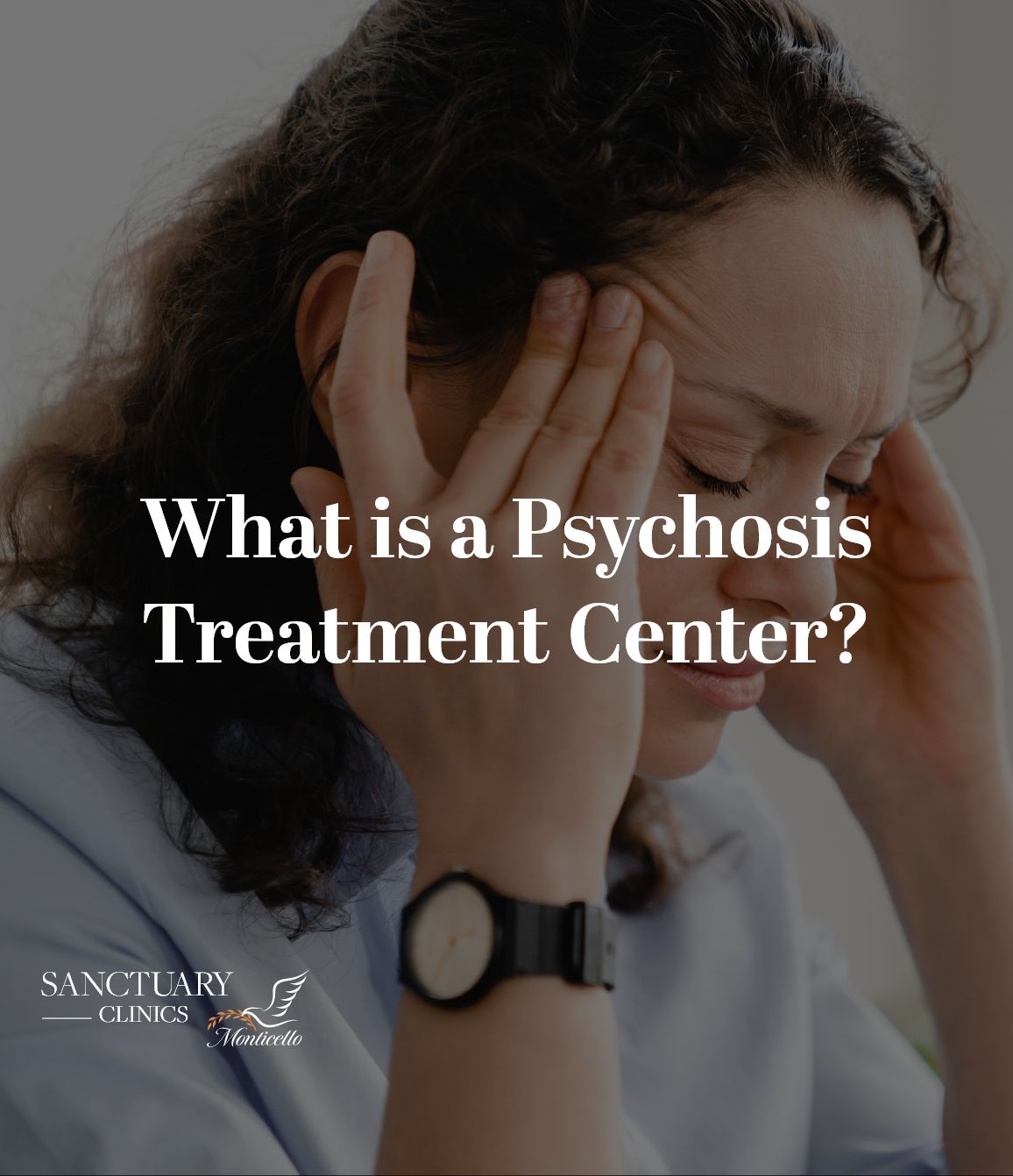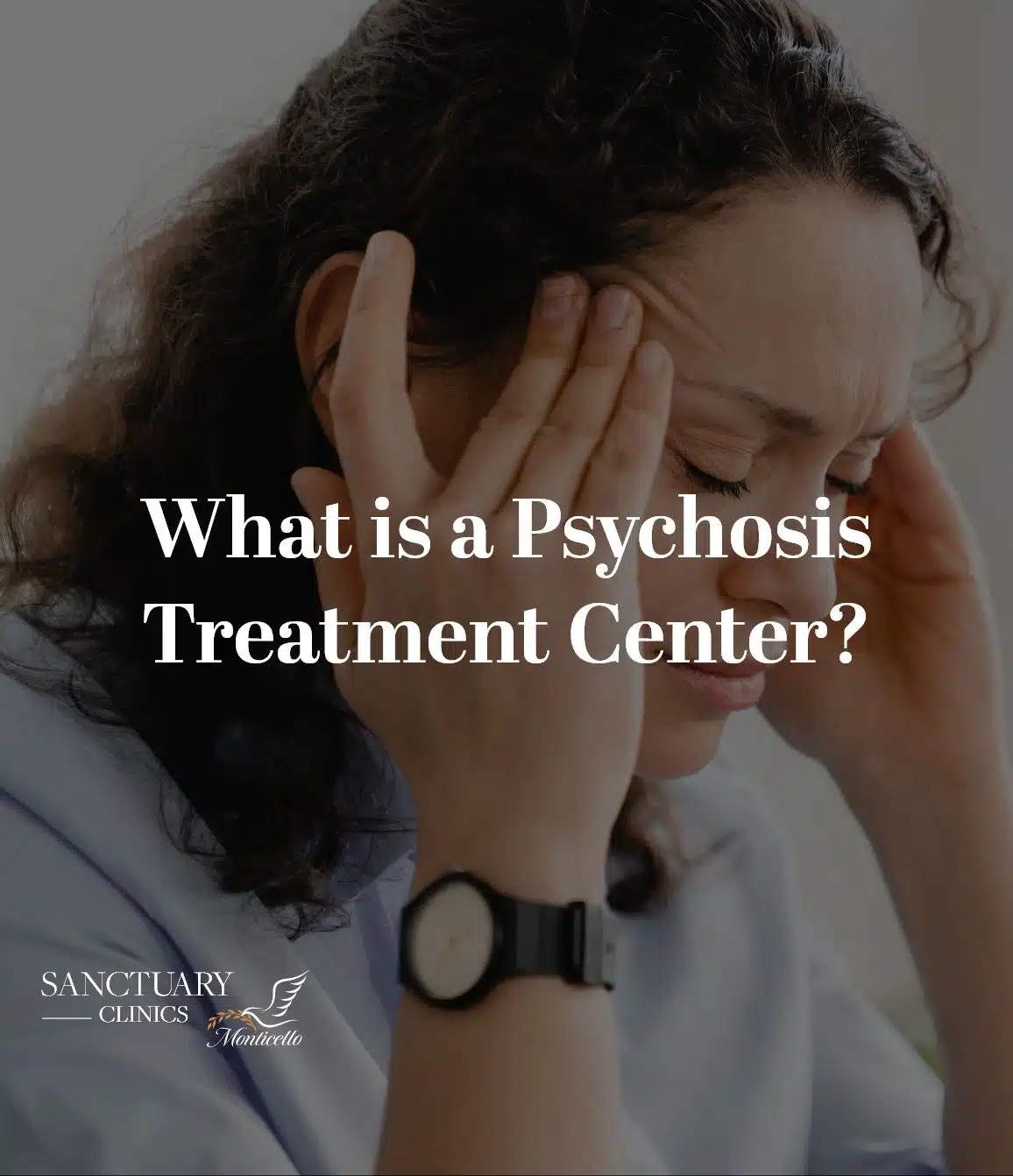

Contents
What is a Psychosis treatment center?
A psychosis treatment center is a facility that provides comprehensive care for psychosis. Psychosis is a mental health condition characterized by a loss of touch with reality. This may include symptoms such as hallucinations, delusions, disorganized thinking, and impaired functioning. A psychosis treatment center offers a multidisciplinary approach. This is to address the complex needs of individuals with psychosis. The treatment team often includes psychiatrists, psychologists, nurses, social workers.
Here, we will talk about psychosis treatment, diagnosis, and prevention.
What are the types of Psychosis
treatment centers?
What are the types of Psychosis treatment centers?
There are different types of psychotic treatment centers. Some examples include psychiatric hospitals, treatment centers, and outpatient clinics. Depending on the situation of the patient, he or she may be taken to a psychosis treatment center.
How does Psychosis treatment work?
Psychosis treatment can vary depending on the individual and the severity of their symptoms. Generally, psychosis treatment involves a combination of medication and therapy. Medication, such as antipsychotics, can help to reduce the symptoms of psychosis. Therapy, such as cognitive behavioral therapy (CBT) can also work. It can help the person to understand and manage their condition, and to develop coping strategies. In some cases, hospitalization may be necessary. This is especially true if the person is experiencing severe symptoms. Or, if they’re a danger to themselves or others.
There are several different approaches to psychosis treatment. One approach is called cognitive behavioral therapy for psychosis (CBTp). CBTp helps people to identify and change unhelpful thoughts. It also helps people change behaviors that may be contributing to their psychosis symptoms. It also teaches people how to manage their stress and anxiety. Another approach is family therapy. This involves educating the person’s family and friends about psychosis. This is so that they can know how to best support the person.
Another treatment approach is psychoeducation. It is focused on educating the person about psychosis and its symptoms. Psychoeducation helps people to understand what is happening to them. It can reduce the fear and stigma associated with psychosis. Additionally, this approach helps people to know what to expect and how to manage their symptoms.
Another aspect of treatment is medication management. It involves a psychiatrist prescribing and monitoring medication to help control psychosis symptoms. The most common medications used to treat psychosis are called antipsychotics. Antipsychotic medications are often prescribed to help manage the symptoms of psychosis. The symptoms may include visual hallucinations or auditory hallucinations. The choice of medication and dosage is determined by a psychiatrist or medical professional.
Causes of Psychosis
There are several causes of psychosis. For instance, it can include genetics, brain chemistry, and environment. Some people may be more likely to develop psychosis due to their genetics. For example, people who have a close relative with psychosis may be more likely to develop the condition themselves. Additionally, psychosis may be caused by imbalances in brain chemicals, such as dopamine and serotonin. Stressful or traumatic life events can also trigger psychosis in people who are already at risk.
There is evidence to suggest a genetic component to psychosis. Certain genetic variations may increase the vulnerability to develop psychotic disorders. Severe psychological trauma, such as physical or sexual abuse, can increase the risk of developing psychosis. Additionally, high levels of chronic stress or traumatic life events may also be a factor. They can contribute to the onset or worsening of psychotic symptoms.
Additionally, social isolation and lack of sleep can increase the risk of developing psychosis. It’s important to note that not everyone who experiences these risk factors will develop psychosis. The combination of risk factors and a person’s genetic makeup can determine whether or not they develop the condition.
Psychosis Diagnosis
Psychosis diagnosis is usually done through a process called a psychiatric evaluation. During this evaluation, a doctor will ask the person about their symptoms and medical history. They may also use tests like brain scans or blood tests to rule out other possible causes of the symptoms.
Signs
One common sign of psychosis is having hallucinations. They are false perceptions of things that aren’t actually there. This can include seeing, hearing, or feeling things that others can’t. Another sign is delusions, which are false beliefs that are not based in reality. For example, someone with psychosis may believe that they’re being followed or monitored by others. They may also believe that they have special powers or abilities. Other common signs of psychosis include disorganized speech, difficulty concentrating, and social withdrawal. People with psychosis may also have a sudden change in personality or behavior.
Symptoms
There are common symptoms for psychosis.
The benefits of Psychosis
treatment centers
The benefits of Psychosis treatment centers
There are many benefits of psychosis treatment centers. These centers typically offer a team of professionals. The team includes psychiatrists, psychologists, social workers, and nurses. They can provide the best possible care for a person with psychosis. Psychosis treatment centers also offer a structured environment. It can be very helpful for someone who is experiencing psychosis. The structured environment can provide stability. This can be very comforting to someone who is struggling with their mental health. Additionally, treatment centers can provide medication management, therapy, and support groups. This can all be beneficial for someone with psychosis.
Psychosis prevention
While psychosis prevention is not always easy, there are some steps that can be taken to reduce the risk. First and foremost, it’s important to prioritize mental health and take steps to reduce stress. Stress can be a major trigger for psychosis, so finding ways to manage stress is crucial. Additionally, avoiding drugs, alcohol and toxic substances is important. They can also trigger psychosis. Getting adequate sleep, eating a balanced diet, and exercising regularly can also help reduce the risk of psychosis. Finally, if you have a family history of psychosis, it’s important to be aware of the signs and symptoms and seek help early.
Sanctuary Clinics Psychosis treatment Facility in Florida
Sanctuary Clinics Psychosis treatment
Facility in Florida
Experience compassionate, affordable care at Sanctuary Clinics Psychosis treatment Facility in Florida. Our dedicated team provides personalized support, and a nurturing environment for your recovery. We believe everyone deserves access to quality mental health care without financial barriers. With flexible payment options, we make it easier for you to get the help you need. Take the courageous step towards a brighter future. Reclaim your life from psychosis. Contact Sanctuary Clinics Psychosis treatment Facility in Florida today for your recovery process. Let us be your partner on the journey to healing.
Psychosis treatment centers FAQs
Can a person with psychosis be cured?
Yes and no. While there is no cure for psychosis, it is treatable with the right care. Psychosis can be managed through a combination of medication, therapy, and lifestyle changes. Medication, such as antipsychotics, can help to reduce the symptoms of psychosis. On the other hand, therapy can help the person to cope with their condition. Lifestyle changes, such as getting enough sleep and avoiding stress, can also be helpful. With treatment, most people with psychosis can live healthy and productive lives. Some people may even go into remission, where their symptoms go away completely.
Where do you take someone with psychosis?
The first step is to get them to a doctor or mental health professional who can assess their condition and make a diagnosis. Depending on the severity of the symptoms, the doctor may recommend hospitalization. This can provide a safe and supportive environment for the person to get the help they need. It's also important to contact a family member or close friend of the person who is experiencing psychosis. They can provide support and be a valuable resource during this difficult time.
How long does psychosis last?
The length of psychosis can vary greatly from person to person. Some people may experience a single episode that lasts a few days or weeks, while others may have ongoing or recurring episodes. On average, a psychotic episode lasts between three and six months. However, some people may experience a more chronic form of psychosis, which can last for years. With treatment, the length of a psychotic episode can be reduced and the symptoms can be controlled. It's important to remember that each person's experience is unique, and the length of psychosis will vary.
What triggers psychosis?
There are a number of factors that can trigger psychosis. Some of the most common triggers include:
- Stressful life events, such as a divorce, job loss, or death of a loved one
- Substance abuse, particularly the use of drugs like cocaine, LSD, or amphetamines
- Medical conditions, such as schizophrenia, bipolar disorder, or Parkinson's disease
- Changes in brain chemistry, such as low levels of certain neurotransmitters
- Poor sleep or malnutrition
What are the warning signs of psychosis?
There are a number of warning signs that someone may be experiencing psychosis. Some of the most common include:
- Withdrawing from friends and family, lowered social skills
- A decline in performance at work or school
- A change in sleeping or eating patterns
- Paranoia or suspiciousness
- Changes in personality or behavior
- Seeing, hearing, or feeling things that aren't there
- Confused or unclear thinking
- Strong, inappropriate emotions
- Having strange or unusual beliefs
- Talking about unusual or unrealistic ideas
Is someone with psychosis dangerous?
No. It is a common misconception that individuals with psychosis are inherently dangerous. In reality, the majority of individuals with psychosis are not violent or dangerous to others. It's important to understand that psychosis is a symptom of an underlying mental illness. It does not automatically imply a propensity for violence. People with mental illnesses are not always scary or violent.
However, it's true that psychosis can sometimes be associated with aggression. This is especially if the person is experiencing paranoia or delusions of persecution. In these cases, the person may feel threatened and act out in an attempt to protect themselves. If you know someone who is experiencing psychosis, it's important to get them help from a mental health professional. With treatment, most people with psychosis can lead normal, healthy lives.




